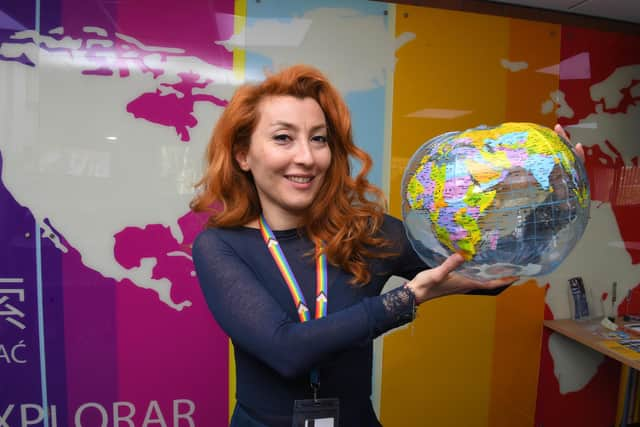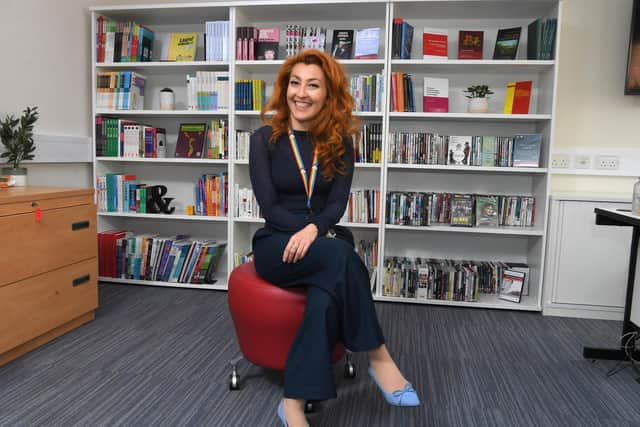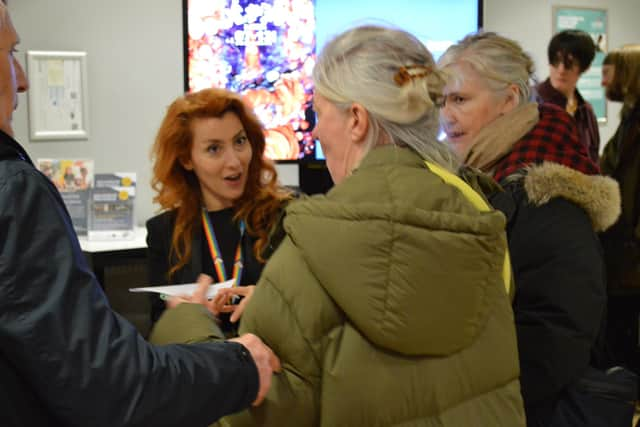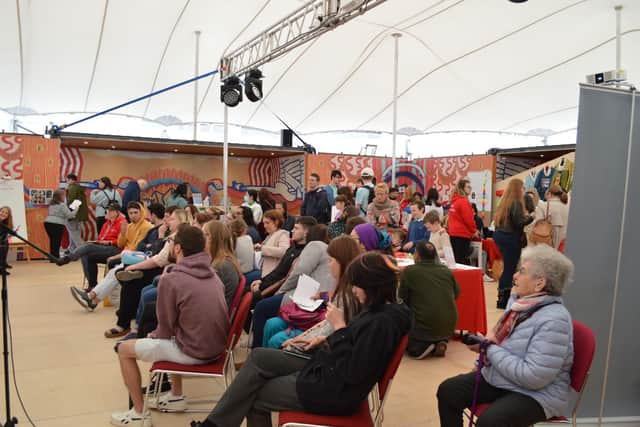Preston’s Europeans: UCLan’s Worldwise Learning Centre manager on how Europeans enhance the education of Preston’s students and wider community
and live on Freeview channel 276
UCLan’s Worldwise Learning Centre Manager, Sofia Anysiadou from Greece, believes Europeans are vital to the education of the city, both because of the roles they play as staff and students at the university, but also for how they educate the wider community.
Sofia demonstrates this herself as manager of the Worldwise Learning Centre, a position she has held since 2018. It is an international hub on campus which offers UCLan students, staff and the public opportunities to learn a new language and attend events which promote multilingual diversity and greater cultural awareness.
Advertisement
Hide AdAdvertisement
Hide AdOriginally from the Greek city Thessaloniki, Sofia first came to Preston to work at UCLan in 2010, and says her hometown “is incredibly similar to Preston in the way that it is very diverse, very multilingual… I always find it incredible when I walk down Preston city centre, and I can hear four different languages being spoken.”


Sofia, who lives in Preston city centre, believes this multiculturalism is essential to the educational provision UCLan offers, as it means staff have a varied wealth of experiences they can share with students, and it allows the university to employ those at the top of their field of expertise globally.
As a UCLan spokesperson said: “We welcome and celebrate the rich diversity of our students, staff, and our community partners. We’re proud that many different cultures and languages make up the rich tapestry of our university, recognising that our diversity is our strength. We’re very lucky to have colleagues like Sofia, and the many others from around Europe, who make an enormous contribution to UCLan, and to our wider community.”
Sofia explained that a diverse staff team is especially important in her UCLan school ‘Humanities, Language and Global Studies’, as the teaching delivery of such subjects is even greater if the staff member has lived in the country in question.
Advertisement
Hide AdAdvertisement
Hide AdFocusing on the Worldwise Learning Centre, Sofia added: “One of the things that definitely made me stay and see the centre evolve, was the fact that diversity is reflected in the staff body, we've got staff from all around the world, especially the European Union, and our students are equally reflecting that diversity, that element is the one that makes it so unique, and it definitely contributes to its success.”


Sofia elaborates that the university's educational delivery is improved by having students from other nations as this diversity during lessons allows students to learn “how to overcome communication barriers”, adding “if we hadn't had that mixture of different students, our classes wouldn't have been that successful, it wouldn't have helped students to gain as many transferable skills.”
Specifically as a language teaching body, the Worldwise Learning Centre also employs native speaking students to help learners, so “without European students at UCLan, our service would be heavily impacted”, she adds.
Changes following Brexit means that EU students now pay international fees rather than home fees, and Sofia says it has heavily affected the number of European students attending higher education in UK, which is regretful not just for UCLan’s programmes but “for everyone- the community as well.”
Advertisement
Hide AdAdvertisement
Hide Ad

For the wider community, Sofia explains that local businesses, especially those with an international outlook, often tell the centre that “intercultural competence is incredibly important”, so those students that have learnt this are “more employable”. This means that European collaboration allows UCLan students to get more out of their education, whilst Preston businesses benefit too.
Sofia, who speaks German and Italian on top of English and Greek, explained: “For example, I come from Greece, and I came to work in the UK, it has a completely different work environment, so we try to help our students break down those barriers so when they graduate, they find themselves standing out from the crowd by having these global skills under their belt.”
Sofia also says the centre's services are used to educate “people from the local community who may have an interest in expanding their business abroad”, with their internationally diverse staff teaching Preston residents new languages, and their public engagement events helping them improve their intercultural competence.
Outside of educating Preston’s businesses, learning about European culture helps improve the education of the general public, with Sofia citing the ‘Festival of Language and Culture’, which the school of Humanities, Language and Global Studies held at Preston’s mobile event tent last June, as a great example.
Advertisement
Hide AdAdvertisement
Hide Ad

Sofia admits she was “shocked” by the many members of the public who had never left England and knew barely anything about some of Europe’s most famous traditions, like Oktoberfest or Día de los Muertos in Latin America. However she received such positive feedback that it “showed that people have an appetite for experiencing different cultures, for learning different languages, and I think the university is the first place for them to go in order to get that feeling, aside from travelling.”
Just as Sofia and her European colleagues are able to teach Prestonians about European languages and culture, Sofia says Eurovision also offers that same education to people, from the comfort of their sofa.
Sofia explains: “Through the different languages, the particular musical instrument you might not have seen before, the costumes they are wearing, the traditional dances they do, it is an incredible event in opening up a window to a different world. So this year, as always, we're gonna gather around the sofa and have good fun!”
